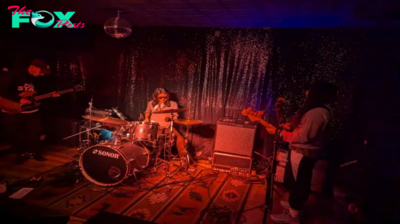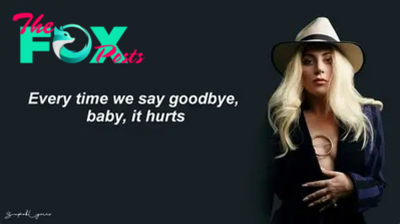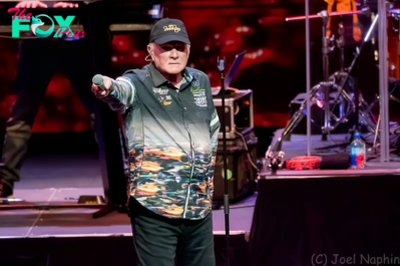Entertainment
Sam Gendel / Sam Wilkes: The Doober Album Assessment
A couple of quarter of the best way into “Candy Hearth,” Sam Gendel interrupts himself with a raspy, scraping yelp. Moments earlier than, he’d been skronking away on his C-melody saxophone, lobbing a torrent of notes into the areas round Sam Wilkes’ bouncing bassline. All of a sudden, his voice erupts, as if he’s been stung by a hornet or grabbed maintain of a searing sizzling pan. It’s not a howl of ache, however a fleeting exorcism, the facility of the jam compelling him to launch the spirit. In true call-and-response jazz custom, he places the sax again to his lips and conjures a few equally coarse honks from the instrument earlier than resuming his dexterous cascade.
That flash of primal pleasure succinctly conveys the sensation of discovery permeating The Doober, the third album within the Los Angeles experimental jazz duo’s Music for Saxofone and Bass Guitar collection. As on their first two data, the pair culled these songs from stay performances, enhancing out the viewers however preserving the crackling power intact. Studios permit artists to form, overdub, and edit their approach into an concept, however taking part in stay is inherently uncooked; feeling the vibe of a room, speaking with out talking, and leaving house for likelihood are extra instant paths to transcendence. The Doober is one other doc of those musicians’ innate chemistry and belief, discovering magic within the journey with no actual vacation spot in thoughts.
Many of those songs are covers—or at the very least they begin that approach. There’s nothing particularly trustworthy about these variations; Gendel and Wilkes are extra thinking about spacious textural exploration. On “Rugged Highway,” they extract the refrain melody from Judee Sill’s craving psych-folk basic “There’s a Rugged Highway” and switch it right into a wriggling, cartoonish mass. Because the depth builds, Gendel and Wilkes somersault over one another, layers of sax and bass swirling right into a Tasmanian Satan cloud earlier than collapsing, grinning and exhausted. Of their arms, Joni Mitchell’s “The Circle Recreation” turns into a modal examine, shifting round itself like a deconstructed Rubik’s Dice. Because the minimal drum machine sample will get extra motorik, Wilkes locks his Fender P-Bass right into a rePetitive groove whereas Gendel builds a tower of looped drones. Every monitor on The Doober is a framed photograph of outer house, presenting the infinite in a digestible container.
They’re not innovators of type right here—jazz musicians have lengthy handled entries within the canonical songbook as blueprints somewhat than maps. Gendel and Wilkes do it with a cheeky sense of abandon. Their selection of interpolations is typically absurd—who knew there was such an aching, rain-streaked jazz quantity on the coronary heart of Sheryl Crow’s “Tomorrow By no means Dies,” the opening theme for maybe the worst James Bond film? Within the remaining minute and a half of “Ben Hur,” one of many album’s most interesting moments, the duo’s cowl of Miklós Rózsa’s “Love Theme (From Ben Hur)” melts deliciously into Chris Isaak’s “Depraved Recreation,” Gendel’s sax pooling round a weird clip-clop percussion loop. There’s a palpable glee to the album, an nearly mischievous acknowledgment that any piece of music can grow to be an invite to larger freedom.
-

 Entertainment29m ago
Entertainment29m agoHow ‘Interior Chinatown’ Satirises Asians in Hollywood with Witty Social Commentary
-

 Entertainment11h ago
Entertainment11h agoHow to See Ava, Chiang Mai Night Safari’s Golden Tiger
-

 Entertainment11h ago
Entertainment11h agoDictionary.com Names ‘Demure’ as Its Word of the Year for 2024
-

 Entertainment13h ago
Entertainment13h agoAnna Delvey Reunites With Ezra Sosa and Flips Him Off Ahead of ‘Dancing With the Stars’ Finale Return
-

 Entertainment16h ago
Entertainment16h agoMethods to Recharge as an Actor
-

 Entertainment16h ago
Entertainment16h agoWeak Sign: October 4, 2024 Tubby’s
-

 Entertainment16h ago
Entertainment16h ago‘Gladiator II’ Ending Breakdown: Did Lucius Realise Maximus’ Dream of Rome?
-

 Entertainment22h ago
Entertainment22h agoGet to Know Bluesky, the New X Alternative with 18 Million Active Users





















